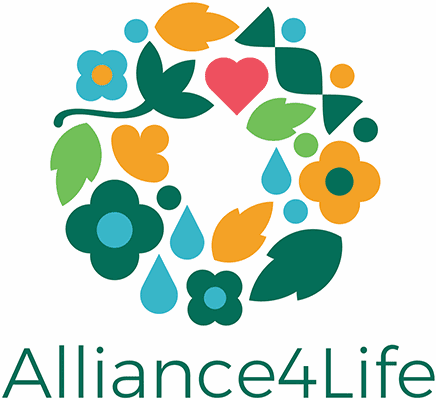What Cancer Research Reveals About Biology: Toivo Maimets’ Groundbreaking Insights

Professor Toivo Maimets, from the Institute of Molecular and Cell Biology at the University of Tartu, Estonia, recently published a highly insightful article in the Frontiers journal titled "Cancer Research and the Mainstream of Biology". His article provides a thought-provoking examination of how cancer research has evolved and its ongoing relationship with broader biological theories. Maimets argues that cancer research not only follows the prevailing biological theories of the time but also actively shapes them. His critical perspective on current cancer theories offers fresh insights into the complexity of cancer and its connection to developmental biology and epigenetics.
The Evolution of Cancer Theories: A Reflection of Biology's Growth
John Cairns, a renowned molecular biologist, pointed out that cancer research has always evolved in parallel with the developments in biology. Over the centuries, cancer theories have consistently followed the dominant biological theories, adapting to the scientific context of each era. From the ancient Egyptian understanding of tumors in the Edwin Smith Papyrus to the modern Somatic Mutation Theory (SMT), cancer theories have continuously been redefined by emerging biological concepts.
However, Maimets highlights that while cancer research has traditionally followed the dominant biological theories, it also plays a vital role in challenging and reshaping them. When cancer treatments fail or experimental results contradict existing theories, it necessitates a rethinking of our approach. Maimets points out that the current SMT, which has dominated cancer research for decades, fails to explain many recent experimental findings, prompting the resurgence of interest in developmental biology and epigenetics.
Returning to Developmental Biology: A New Paradigm for Cancer Research
In recent decades, cancer theories have increasingly focused on genetic mutations as the primary cause of cancer. The Somatic Mutation Theory suggests that cancer arises from genetic mutations that grant cells the ability to divide uncontrollably and spread throughout the body. However, Maimets challenges this reductionist view by revisiting older theories, particularly those related to developmental biology, which view cancer as a disease of cellular differentiation and tissue communication.
Historically, cancer was seen not just as a genetic problem but as a developmental one. In the 19th century, for example, scientists like Julius Cohnheim and Francesco Durante proposed that tumors could arise from "embryonic remnants"—cells that had failed to differentiate properly during development. This perspective is gaining renewed attention today, as developmental biology and epigenetics offer new explanations for tumor formation, focusing on the processes that govern cell differentiation and the communication between cells within tissues.
The Role of Epigenetics and Stem Cells in Cancer
One of the most exciting aspects of Maimets' article is the growing emphasis on epigenetics—the study of changes in gene expression that do not involve alterations to the underlying DNA sequence. This has opened up new possibilities for understanding cancer as a disease of developmental and cellular communication rather than just a genetic issue. Maimets also highlights the role of stem cells and their potential link to cancer development. Recent studies have demonstrated that stem cells, when placed in the right environment, can give rise to tumors, suggesting that cancer may not simply result from genetic mutations but from disruptions in cell differentiation and development.
The link between stem cells and cancer is crucial because it provides a new perspective on the underlying mechanisms of cancer. Stem cells, which have the ability to differentiate into various types of cells, can give rise to cancer when their differentiation processes go awry. Understanding this relationship is a key area of focus for the future of cancer research.
Towards a New Understanding of Cancer: The Need for a Holistic Approach
Maimets' article calls for a more holistic approach to cancer research—one that goes beyond the traditional focus on genetic mutations. Instead, Maimets suggests looking at cancer through the lens of developmental biology, considering how tissues and organs are formed during embryonic development and how disruptions in these processes lead to the formation of tumors.
He proposes that we need to rethink cancer not just as a disease of cells but as a disorder of tissue organization. By understanding how tissues and cells interact in a developmental context, we can gain new insights into cancer and potentially find more effective treatments. This shift in perspective has the potential to reshape the way we approach cancer research and treatment, leading to new strategies that target the root causes of cancer rather than just its symptoms.
Looking Ahead: New Technologies and Future Directions
Looking forward, Maimets emphasizes the importance of developing new research methodologies that address the higher levels of biological organization involved in cancer. He suggests that technologies such as organoid models—three-dimensional cell cultures that replicate the structure and function of tissues—could provide a powerful tool for studying cancer in a more biologically relevant context.
By incorporating these new technologies and embracing a more integrated approach to biology, cancer research can move beyond the limitations of traditional reductionism and uncover new pathways to better understand and treat cancer.
Conclusion
Toivo Maimets' article offers a refreshing perspective on the future of cancer research. His argument for incorporating developmental biology and epigenetics into cancer research is timely and necessary, as these fields provide crucial insights into the root causes of cancer. As the Alliance4Life community continues to explore innovative solutions to the challenges in life sciences, Maimets' work serves as a valuable reminder of the need to look beyond traditional paradigms and embrace a more comprehensive approach to understanding and treating cancer.
We are proud to have Professor Toivo Maimets as part of our network and look forward to seeing how his research continues to shape the future of cancer biology and beyond.




